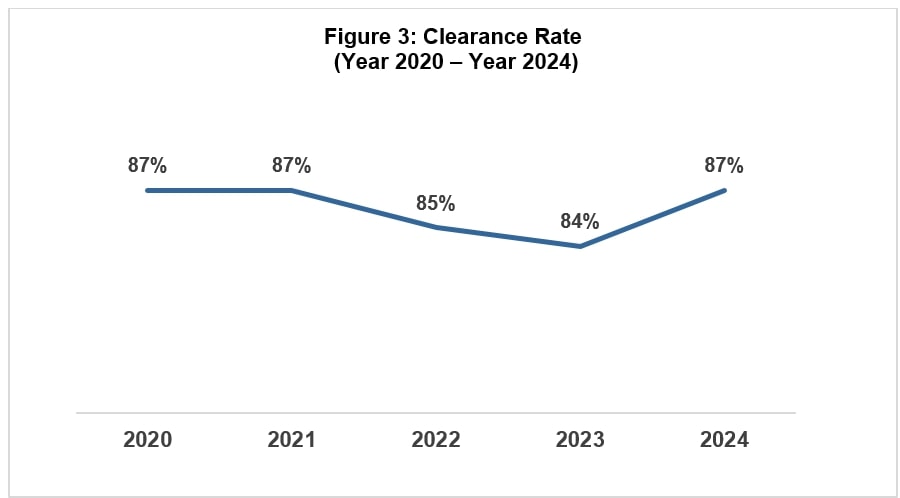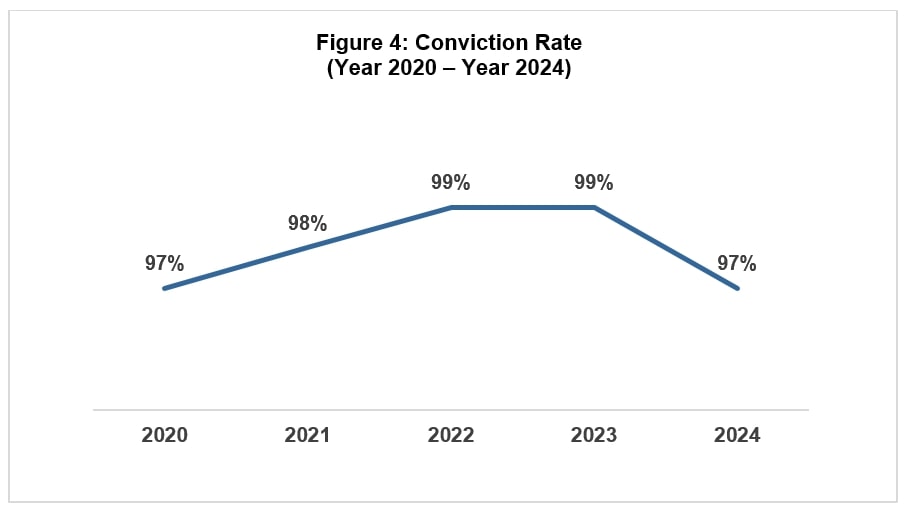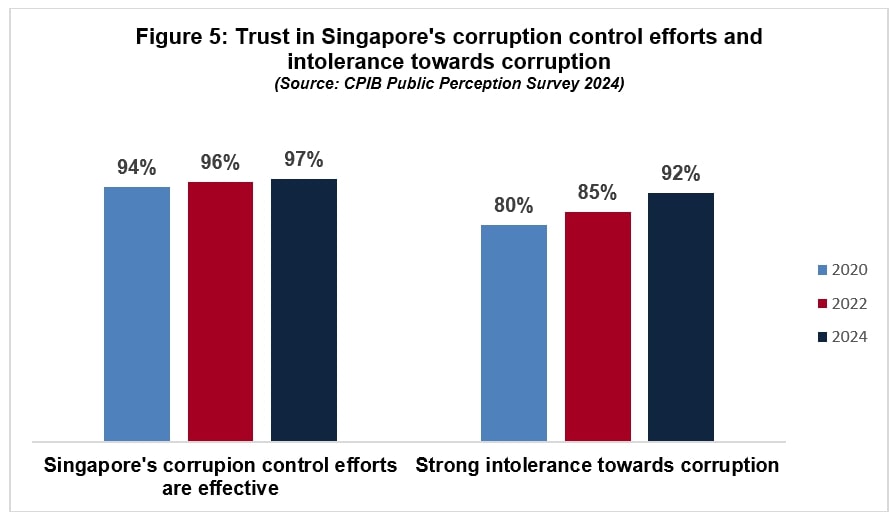Singapore continues to maintain its strong stance against corruption, with the situation in 2024 remaining firmly under control. Latest figures from the Corrupt Practices Investigation Bureau (CPIB) show a further decline in corruption-related activity, reflecting the country’s ongoing commitment to transparency and clean governance.

The number of corruption-related reports received fell to 177 in 2024, an 18 percent drop from the 215 cases recorded in 2023. Of these, 75 reports were registered for investigation, accounting for 42 percent of total reports — a noticeable increase from the four-year average of 35 percent.
As per the news release, reports are only registered for investigation if the information received is deemed pursuable, based on its relevance and quality. CPIB’s investigative efforts and intelligence work also played a key role in uncovering details that supported the registration of more cases for formal investigation.
Of the total reports received in 2024, 61 were made anonymously, representing 34 percent. While CPIB treats all reports seriously regardless of the source, only 17 of the 75 cases registered for investigation — about 23 percent — involved anonymous reports.
The majority of new cases — 91 percent — originated from the private sector. A total of 68 private sector cases were registered, while public sector cases made up the remaining 9 percent, or seven cases, which is lower than the annual average of 11 cases over the past four years.

Among the private sector cases, 12 involved public sector employees who rejected bribes offered by individuals in the private sector. This figure is higher than the previous four-year average of nine such cases and reflects a strong culture of integrity within public institutions.
Prosecution figures also pointed to a similar trend. Of the 133 individuals charged in court for corruption-related offences in 2024, 128 — or 96 percent — were from the private sector.

Only five public sector employees were prosecuted. CPIB also reported a high clearance rate, completing investigations for 87 percent of individuals involved in cases during the year. The conviction rate remained strong at 97 percent. There were four acquittals, with three cases currently pending appeal in court.

On the international front, Singapore’s anti-corruption framework continues to be highly regarded. In Transparency International’s latest Corruption Perceptions Index, Singapore was ranked the third least corrupt country out of 180, with a score of 84 out of 100 — its highest since 2020.
It also marked the first time since 2010 that Singapore topped the Asia Pacific region. Similarly, the Political and Economic Risk Consultancy’s 2024 Report on Corruption in Asia placed Singapore as the least corrupt among 16 economies, a position the country has held consistently since 1995.
The World Justice Project Rule of Law Index 2024 also ranked Singapore third out of 142 countries for absence of corruption in government.
Public confidence in Singapore’s anti-corruption measures remains strong. The 2024 Public Perception Survey commissioned by CPIB showed that 97 percent of respondents rated the country’s corruption control efforts as Good, Very Good or Excellent.

This marked a steady increase from 96 percent in 2022 and 94 percent in 2020. The survey also revealed that 92 percent of respondents were totally or somewhat intolerant of corruption, a significant improvement from 85 percent in 2022 and 80 percent in 2020. Respondents identified harsh penalties, effective legal frameworks, political will, and a zero-tolerance culture as key reasons for Singapore’s continued success in curbing corruption.
Singapore’s approach to anti-corruption is built not just on enforcement but also on prevention, education and community engagement. CPIB continues to strengthen partnerships across sectors to build collective resistance against corrupt practices. Media engagement and community outreach are used to raise awareness, while the private sector is encouraged to adopt stronger governance safeguards, it said.
As part of these efforts, CPIB partnered with the Changi Airport Group to host the 2024 Anti-Corruption Partnership Network (ACPN) engagement event, which brought together over 170 participants. Industry experts from Changi Airport Group, Ernst & Young and SPCS Consultancy shared insights on anti-corruption standards, including the adoption of ISO 37001 Anti-Bribery Management Systems as part of effective corporate governance.


